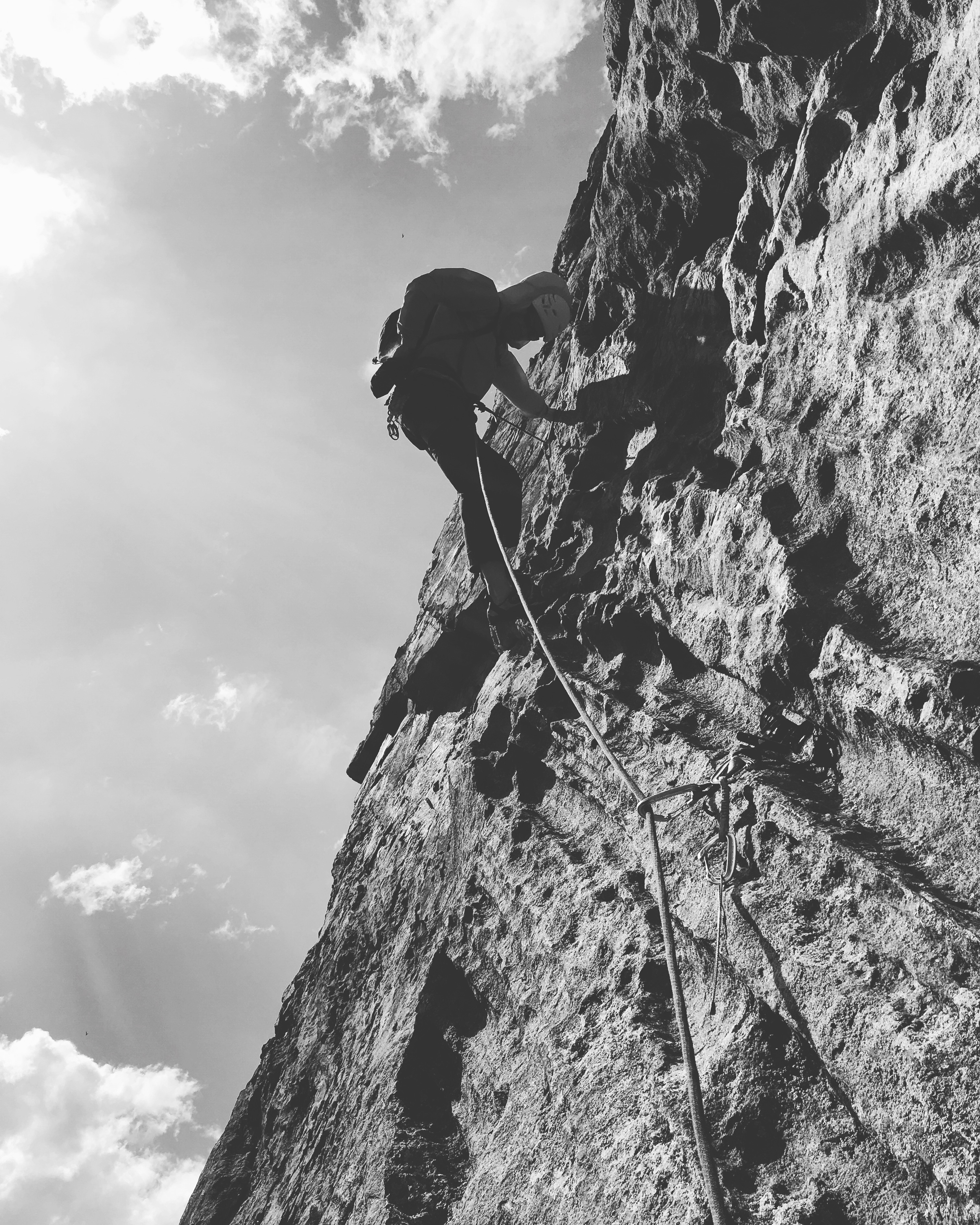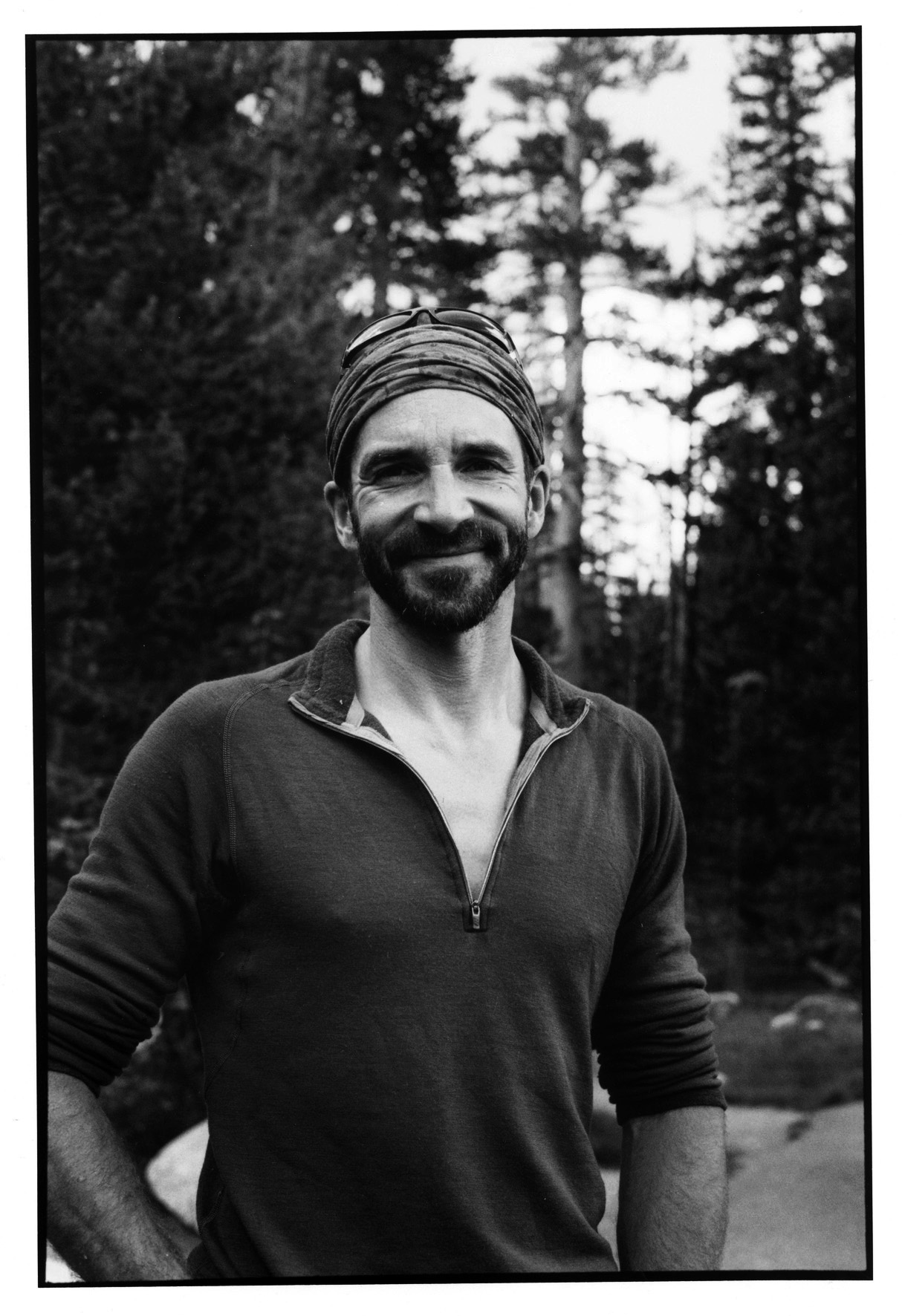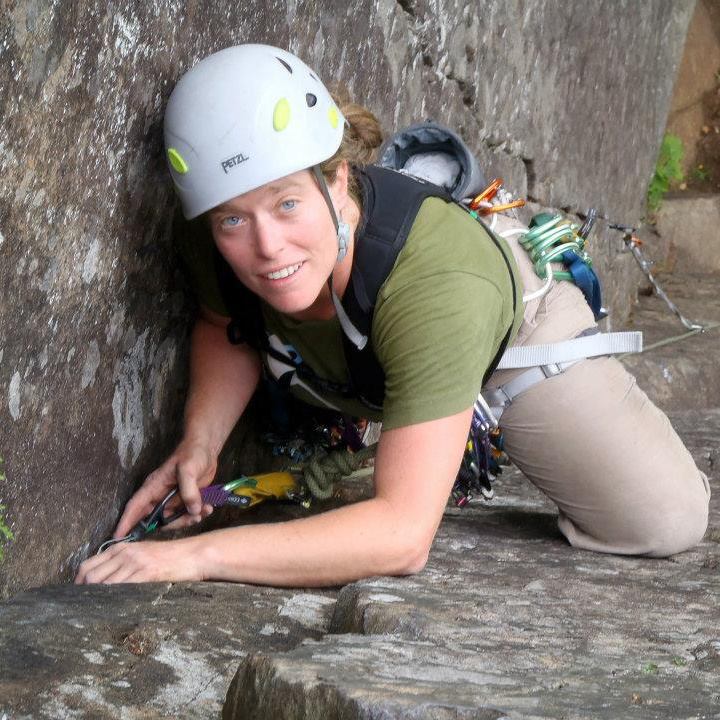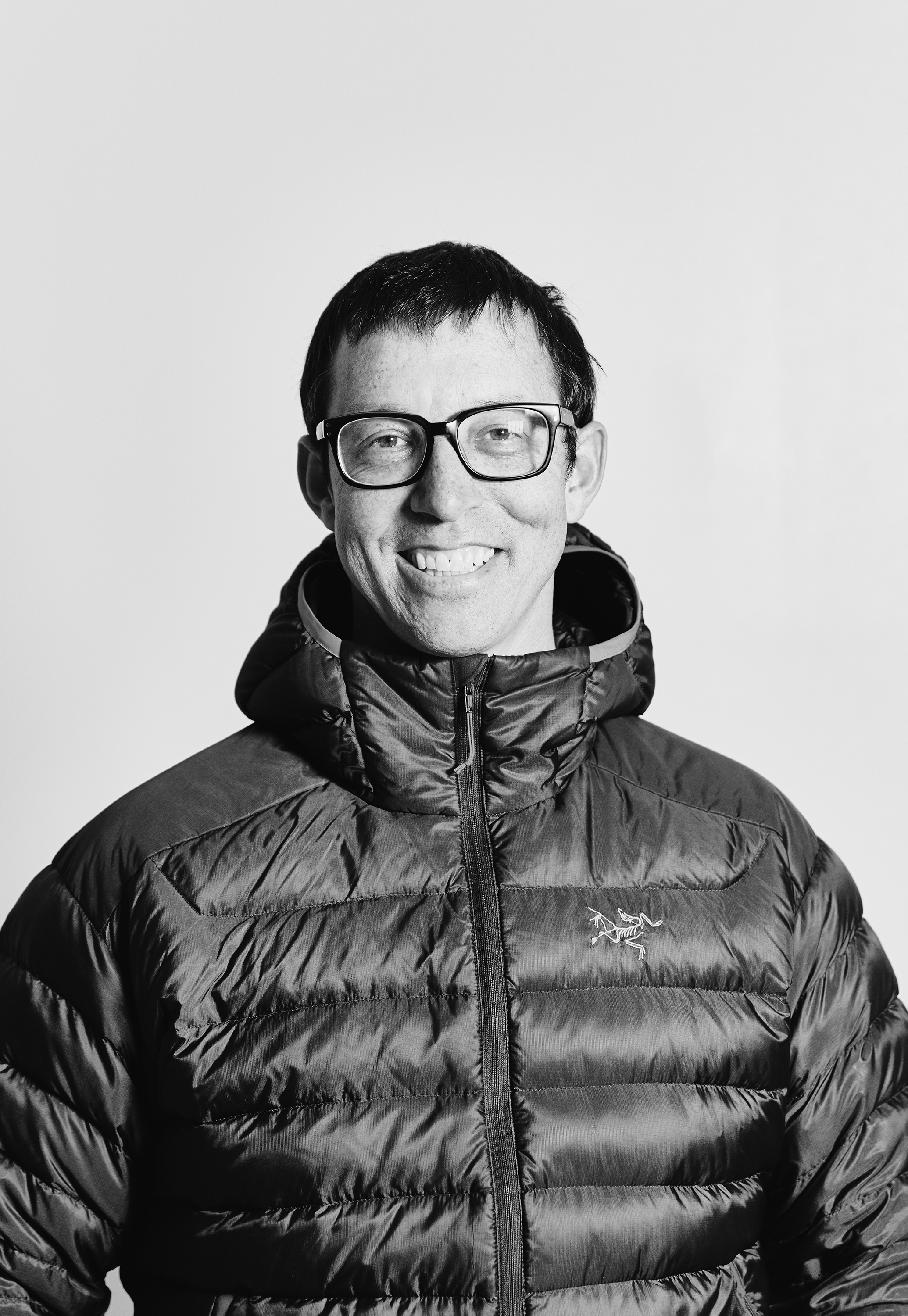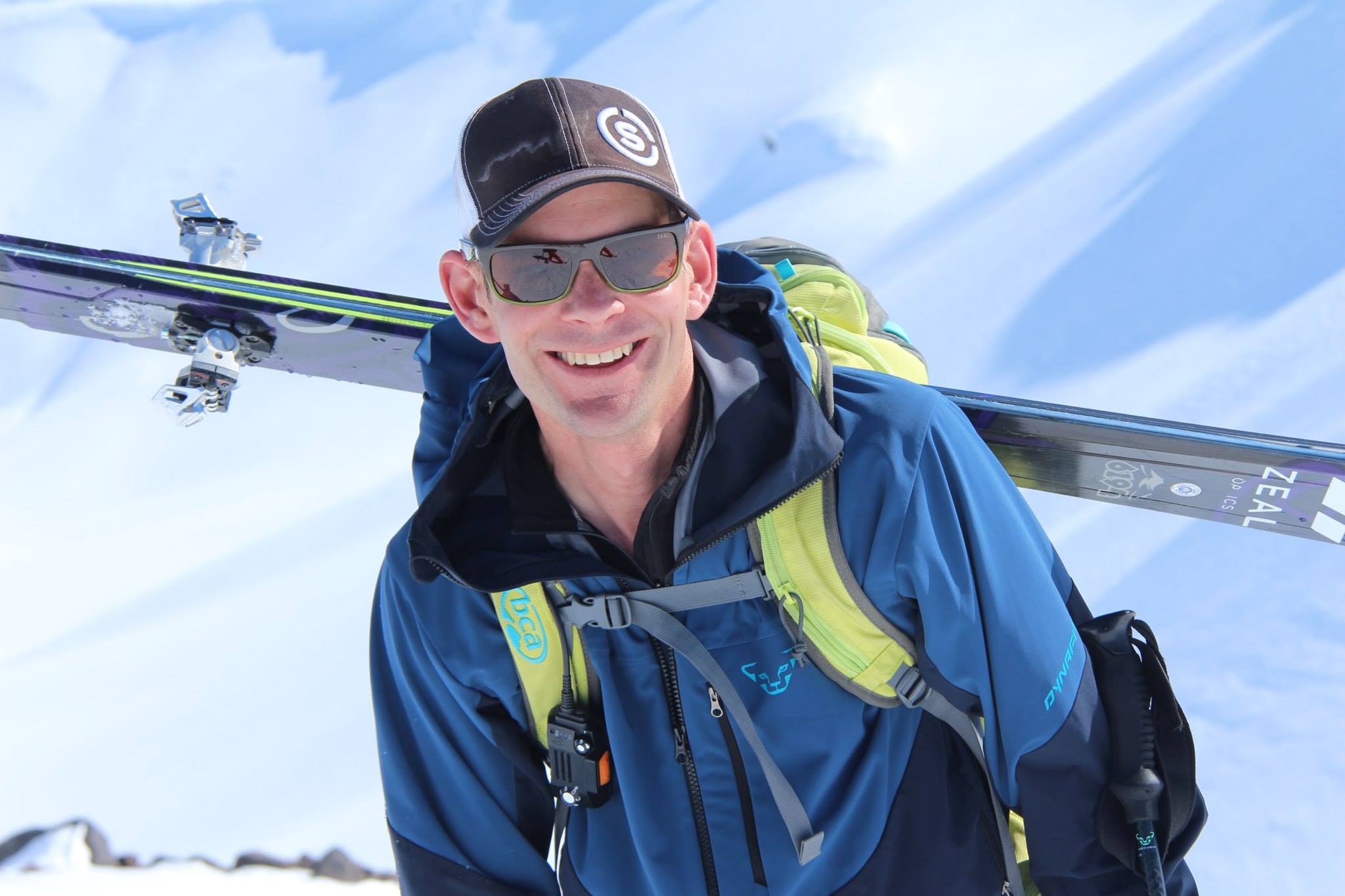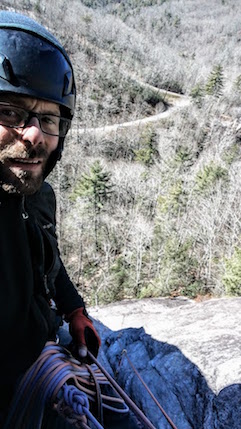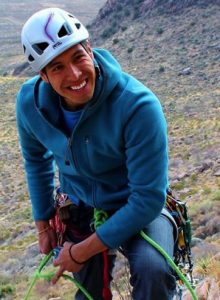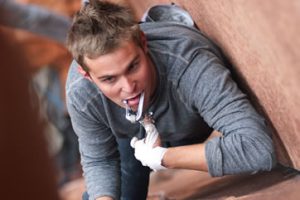Arc’teryx/AMGA Rock Discipline Mentorship Camp – Billy Haas
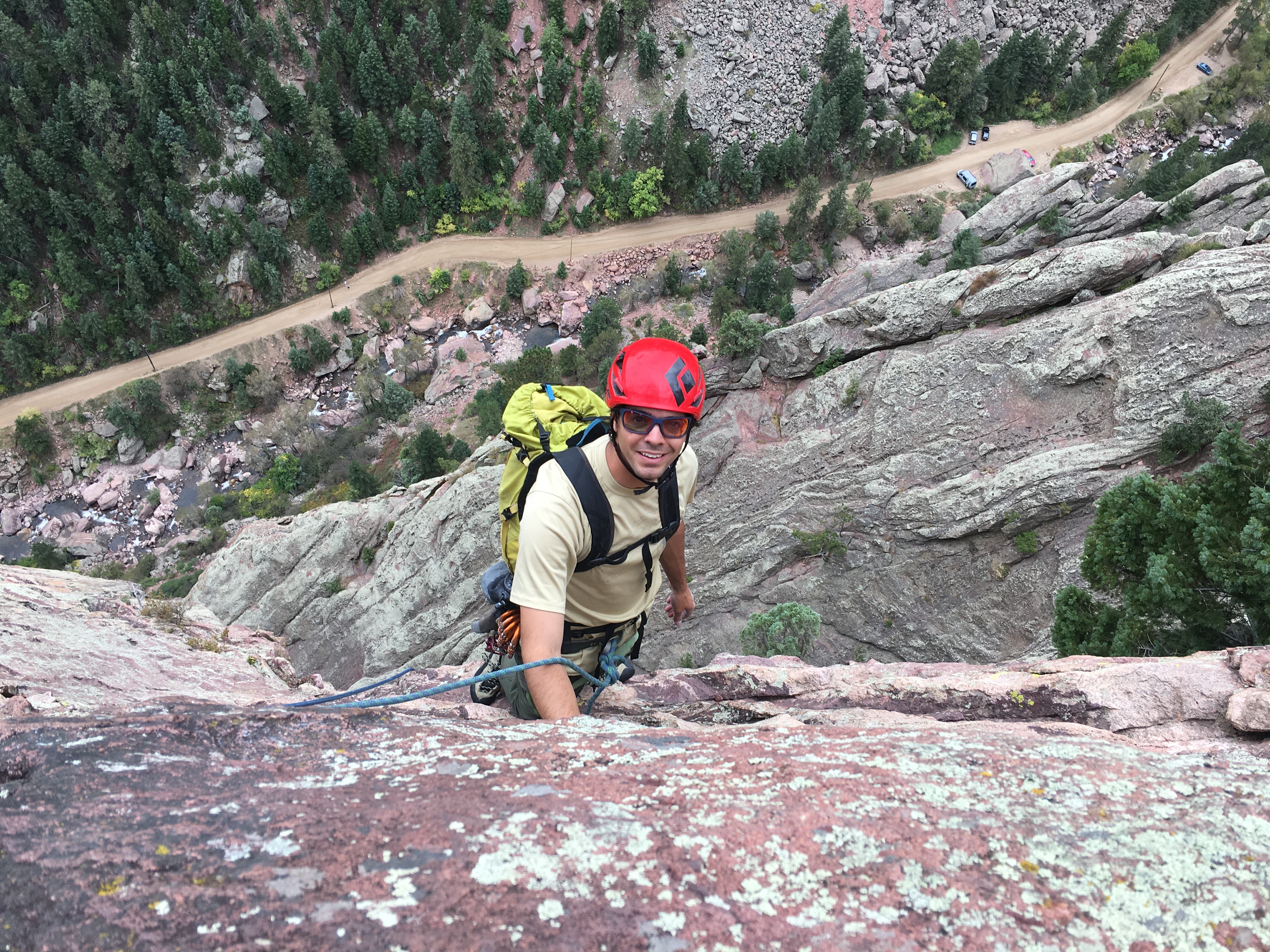
On September 21-22 of 2016, the AMGA, in partnership with Arc’teryx, ran a pilot mentorship program — the Rock Discipline Mentorship Camp. This two-day event consisted of low ratio (2:1) rock discipline specific training with the AMGA Technical Director, Dale Remsberg, in Boulder, CO. The camp offered the opportunity for two AMGA members to come to Boulder, CO and further their skill sets as professional guides.
We received 45 competitive applications for the camp and selected two individuals from the pool. We are super psyched to congratulate Billy Haas and Lindsey Hamm as the individuals who were selected to participate in the camp, and are thrilled to be able to share a bit from their experiences here.
Here’s what Billy had to say about his experience:
What does “mentorship” mean to you? Has this definition changed as the result of attending the camp?
For me the concept of mentorship has always been rather simplistic and defined by a more experienced person imparting upon a lesser experienced person his or her knowledge and skills. However, during the process of the Mentorship camp I began to look at the mentorship relationship more closely, and I think to understand the concept of mentorship it is also important to define and distinguish the other educational process that guides undergo. The four major educational processes for aspiring guides are distinguished by apprenticeship, mentorship, student-teacher, and self education. While my view of mentorship still holds true, the Camp allowed me to more correctly understand the role of mentorship within my education as a guide and to also highlight the other processes from which I am learning.
The student-teacher process is the most recognizable and for guides in the US is manifested in the form of AMGA courses, avalanche education, medical training, and other course-based education. Self education is also easily defined in that it is the process of self teaching that as guide we must all strive to pursue and continue throughout our career.
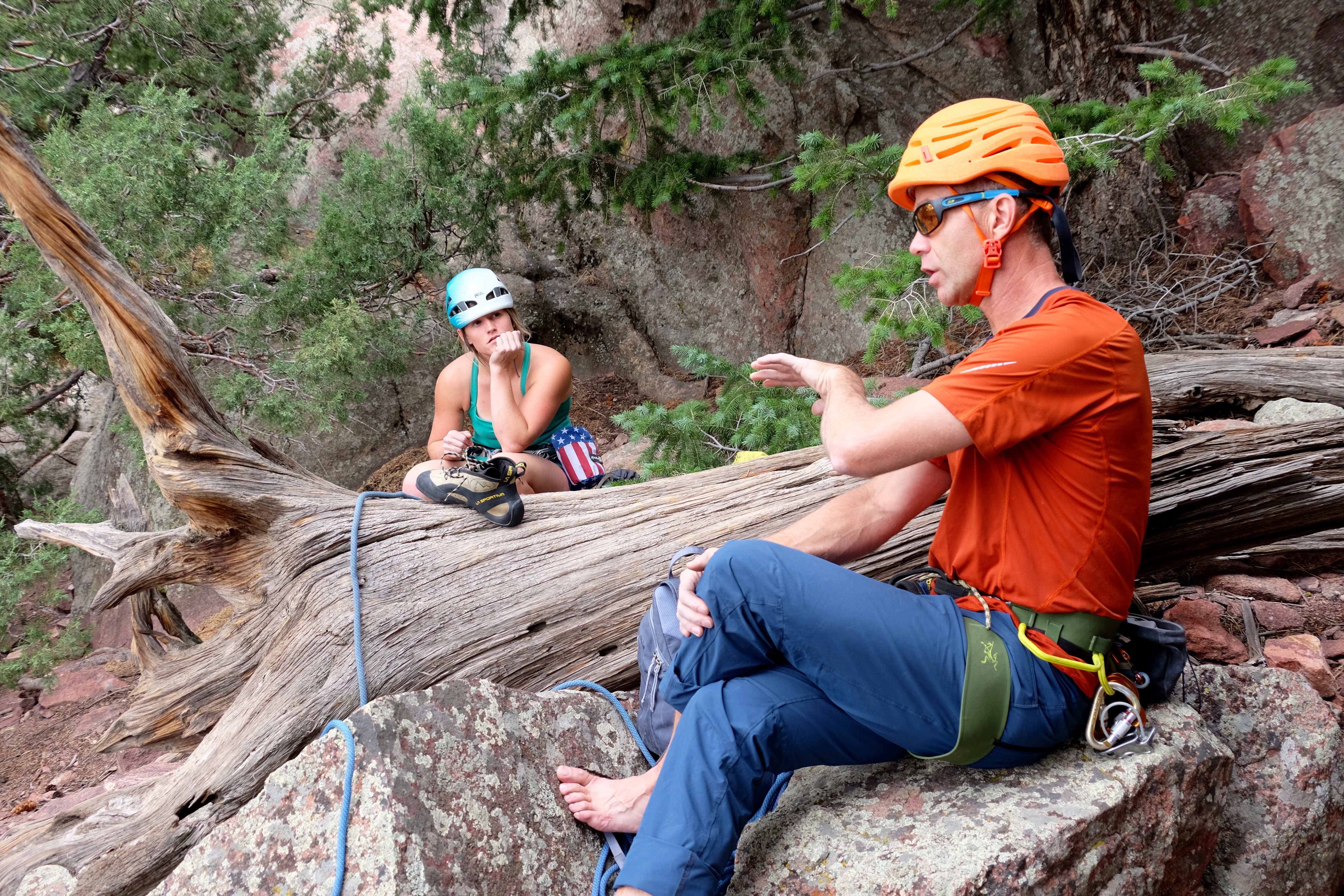 Apprenticeship is the educational relationship that can most easily be confused with mentorship. An apprenticeship is the process of an apprentice learning for a period of time from a single entity, whether that be an individual guide or guide company. For guides this typically is seen in the form of an aspiring guide shadow guiding and or working as an assistant guide for a period of time before progressing into a lead or senior guide. In an apprenticeship the apprentice has not sought out a specific weakness or area for which he or she chooses to improve but rather is focused more on a holistic view of the craft and learning process.
Apprenticeship is the educational relationship that can most easily be confused with mentorship. An apprenticeship is the process of an apprentice learning for a period of time from a single entity, whether that be an individual guide or guide company. For guides this typically is seen in the form of an aspiring guide shadow guiding and or working as an assistant guide for a period of time before progressing into a lead or senior guide. In an apprenticeship the apprentice has not sought out a specific weakness or area for which he or she chooses to improve but rather is focused more on a holistic view of the craft and learning process.
A mentorship differs in that it is a process where a mentee will seek out a mentor, that may or may not be part of their apprenticeship process, and is often sought for their specific knowledge and skill in a certain area of their profession. The mentorship process is most commonly a one on one relationship, a mentor to mentee, that for many guides is a relationship to a more experienced guide. This guide will often be someone who they will look up to and learn from throughout their education and career. For some, mentors are numerous, and for others mentors can be only a few. The Mentorship Camp allowed me the opportunity to seek out a mentor in Dale and his expertise in the rock guiding discipline. While slightly more institutional than the typical mentorship process, I have now found a mentor in Dale and hope to continue to reach out to him, whether it be in a course or on my own as a peer.
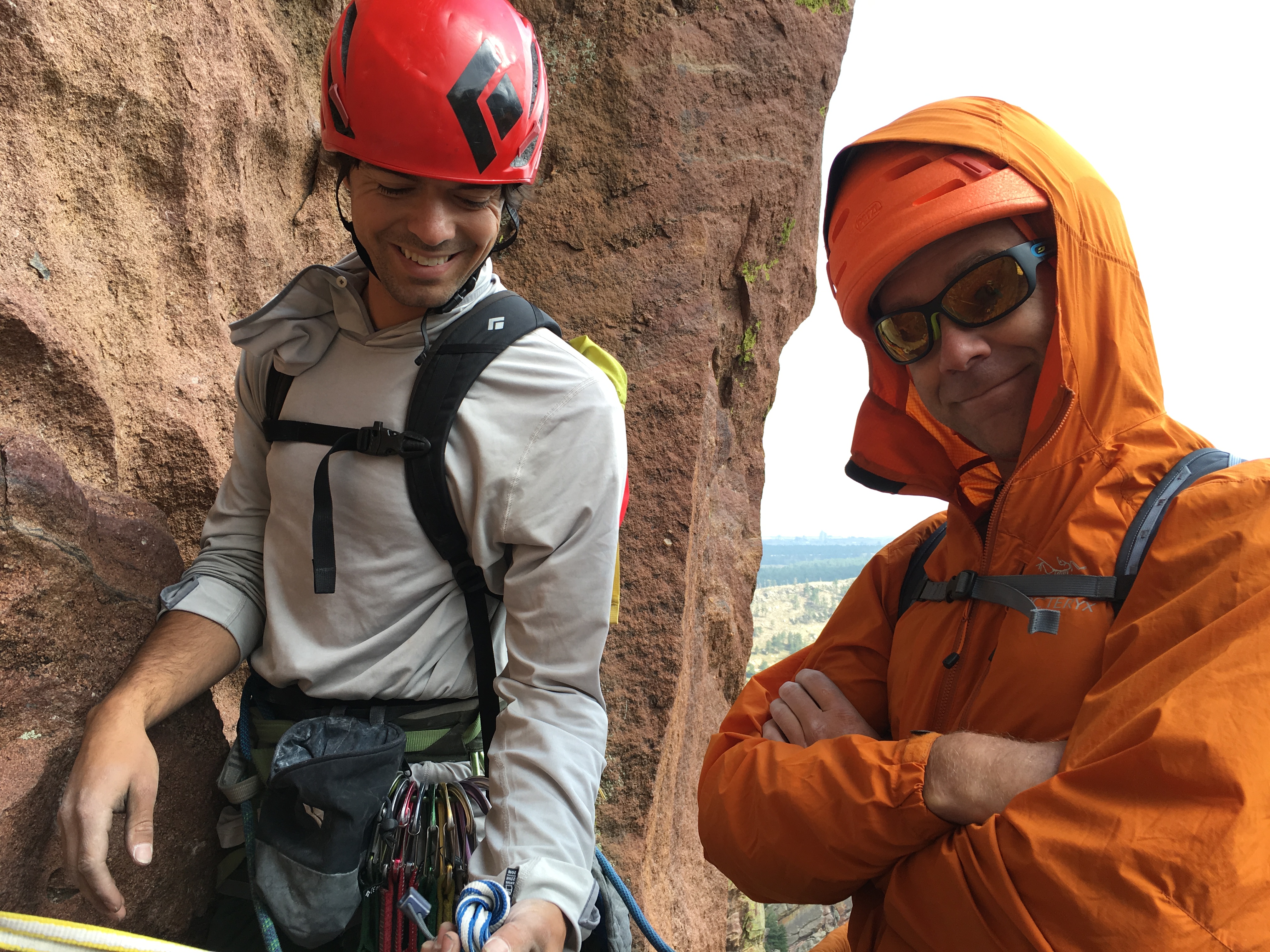 In what ways do you feel mentorship is significant to the craft of mountain guiding?
In what ways do you feel mentorship is significant to the craft of mountain guiding?
The idea of mentorship has been a proven and traditional way of the perpetuation and advancement of craft jobs since the creation of skilled labor, and we rightfully consider guiding to be a craft profession. While you can gather great deals of information from books and tutorials, a craft must be learned from practice and experience. The practice and experience is what develops our intuition and awareness, and without the mentorship process many of the intuition based intricacies and techniques of guiding would not be passed on to younger guides. In addition, as guides we recognize the value in the mentorship process and instead of keeping our knowledge close, we instead chose to impart what we have learned upon newer generations of guides. As a result, guides not only learn the proven skills and techniques of their predecessors, but have a high level foundation from which to continuously improve the craft as individuals and as a collective whole.
How did the 2016 Arc’teryx & AMGA Rock Discipline Mentorship Camp help you grow as a professional?
Any opportunity to watch and learn from a more experienced guide and teacher is a valuable opportunity as a professional. That being said, the Camp went beyond a standard educational opportunity in that it provided a very low ratio learning environment in the rock discipline that I have not had before. It helped me recognize and confirm areas in which I require improvement, but also, and for the first time showed me areas within rock guiding that I do well and can build upon. Much of guiding and more specifically rock guiding is self education, self correction and development, as we often are working alone and rarely receive peer feed back. The mentorship camp not only offered the opportunity to be observed and receive feedback from an expert, but to be able to receive advice on the pathway to improvement from Dale is something that I feel can lack in a standard AMGA course. In the courses we learn how to guide, in the Mentorship Camp I felt as if I was learning the pathway on how to become a better guide.
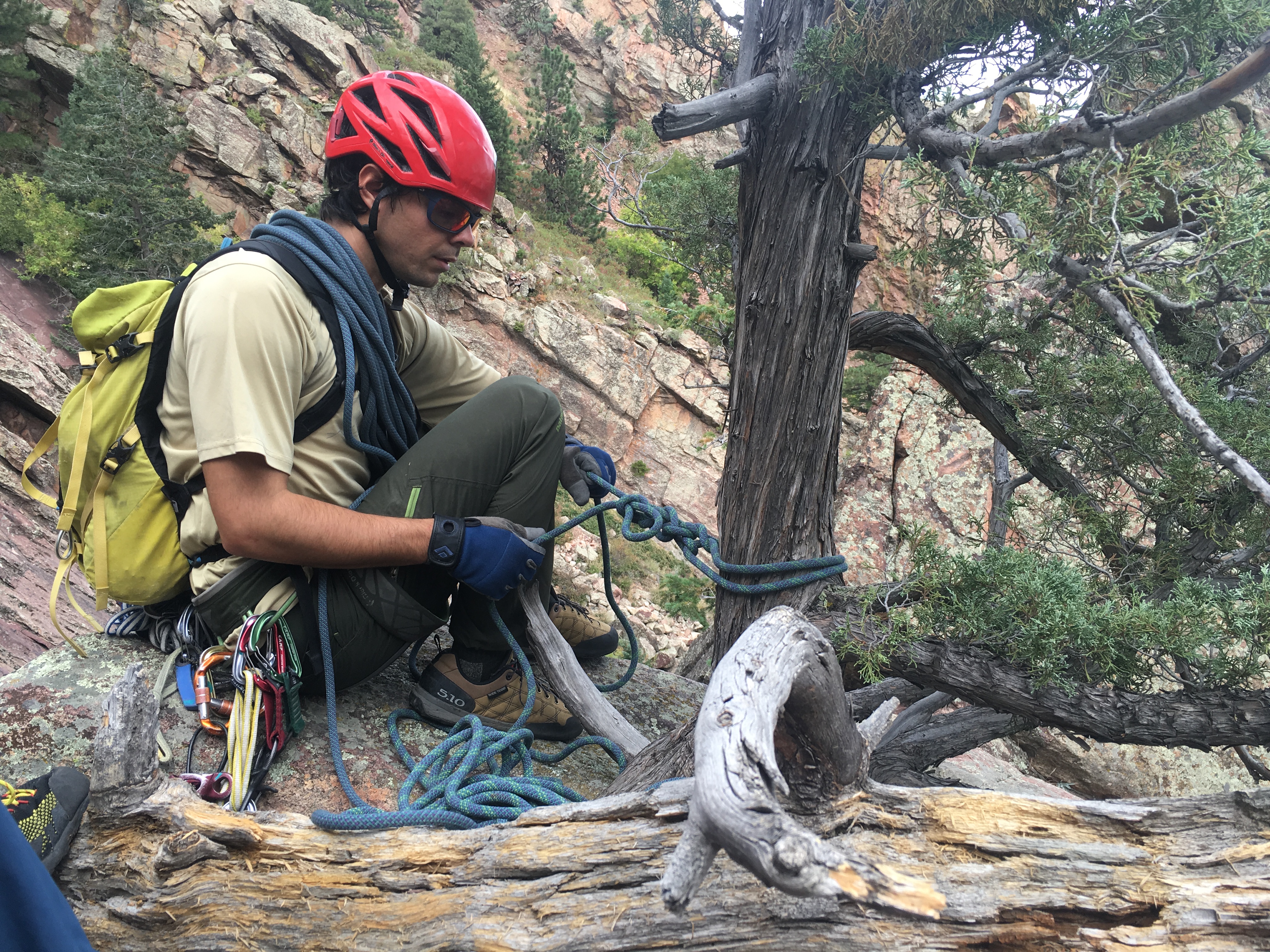 What was the biggest thing you learned while on the Mentorship Camp?
What was the biggest thing you learned while on the Mentorship Camp?
For me there were two major learning outcomes I took from the Camp. The first was with regards to protection techniques specific to guiding. More specifically how to protect non typical routes that involve traverses and or challenging sections, and how to make the experience for the client better and safer.
The second major area of learning for me took place in looking at myself as a climber, and how to get to where I want to be to become a Rock Guide and pass my Rock Exam. I always knew where I wanted to be, but now I know where I stand and how to get there.
What was the most fun you had while on the Mentorship Camp?
Climbing in Eldorado Canyon with two other great climbers was the highlight for me. I really enjoyed the routes, and climbing with Lindsay and Dale made for a great two days.
What is your next step on your path to becoming an AMGA Certified Rock Guide?
My next step in the path to becoming a Certified Rock Guide will be my Advanced Rock Guide Course and Aspirant Exam. While I know I am currently not ready for this course and exam, I do know what I need to work on. For me that begins with my movement on rock and my ability to climb harder routes with confidence.
What advice do you have for future mentorship camp attendees?
The more specific you are with what you want to work on in the camp, the more you will take away from the experience. The responsibility of preparation and desired outcomes are just as much the responsibility of the mentee and it is the mentor.
